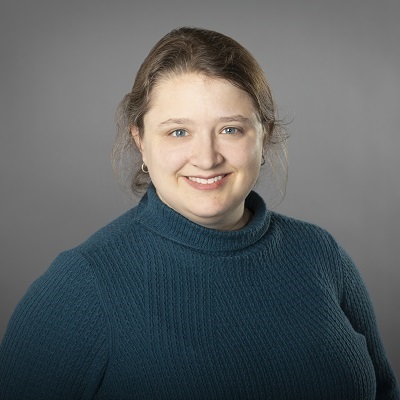Science in the Archives
Elspeth Olson discusses how discovering a folder titled “Physics crackpots” inspired conversation and a podcast episode regarding interdisciplinary research for students and faculty in the hard sciences
Last fall, I had the opportunity to host a class visit to Special Collections and University Archives comprised mainly of students in science disciplines. This is something to be remarked upon, as we rarely see students from the hard sciences come through our doors. I had a good time exploring relevant collections as I sought for materials to pull that might especially attract their attention. Imagine my delight when I encountered a set of folders labeled “Physics crackpots” in the papers of William T. and Ann H. Scott (Collection ID 95-92). I read through them, my reaction shuffling between bafflement and outright laughter.
William T. Scott, Ph.D, was a physics professor here at the University of Nevada, Reno, from 1961 to 1981, with particular interests in cloud physics and the philosophy of science. The materials in these folders are not the typical survivors to be found in archival collections, as they are a set of papers, letters, advertisements, and requests for assistance mailed to the University’s Department of Physics, rather than produced by it. Some of them were clearly handed around to the entire department faculty, and notes appear to indicate the professors’ response.
Back during the COVID lockdown in early 2020, I started listening to a family of history podcasts known to fans as “RexyPods,” inspired by the name of the original one, Rex Factor. The standard model is a rate and review format, in which a historical individual is the subject of the episode. The hosts go over the biographical information and rate the subject on a variety of categories, such as scandal, extant images, and more. They’re well-researched and informative, but also often very funny. Just last year, a new one joined the family: Nobelesse Oblige, rating the winners of the Nobel Prizes. I’m acquainted with one of the hosts, University of Mississippi physics doctoral student Quinn Campagna, via a shared history podcast Discord community. When I shared some of the materials I found in the “crackpot” files, he invited me to join him and his co-host Maggie for a special episode discussing a few of the documents in these files. The idea was to choose a couple items, ranging from the obviously ludicrous to the kind of paper that might seem convincing to a non-physicist. We’d go over them, Quinn would explain why they’re “crackpot” with any relevant historical context, and it would all be an informal but hopefully amusing and educational experience.
The episode dropped recently, and it was fun to re-listen to it. We learned about gravitons and why they’re a frustrating puzzle, explored mid-century cosmic vibrations, and chuckled over what is seemingly a known category of physics amateur: the retired engineer who tries to take on Einstein.
It’s easy to think that archives are just for the humanities disciplines, especially history. And it’s true that what we have here are by nature largely historical materials. I think it’s worth remembering that every discipline builds on what has been done previously. The “crackpot” files can be a treasure trove of information – some ideas that seemed wildly off-base may have subsequently been discovered to have some merit, while others are useful for understanding past lines of inquiry and trends in research.
Sciences students and faculty: There are materials in archives that are relevant to your work. With ever-increasing interdisciplinarity in academia, it’s worth expanding your research skills and thinking outside the box when it comes to developing new projects. Come explore the past in order to push science into the future.














